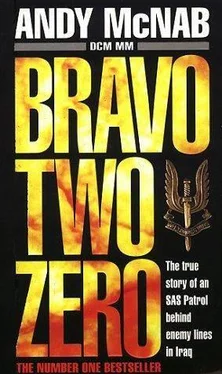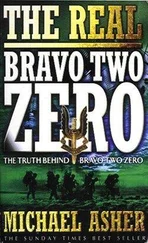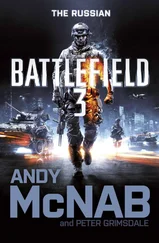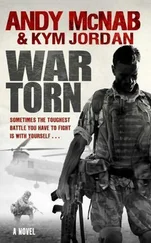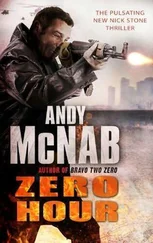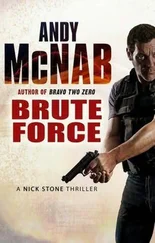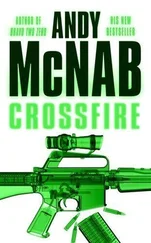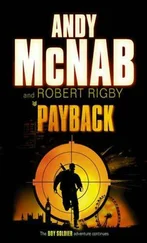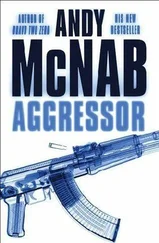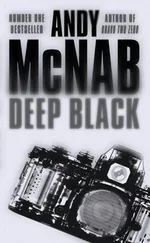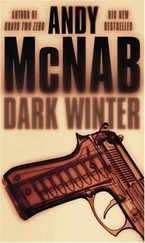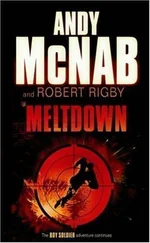The door to the cell was something that the sheriff would put you behind in a western. The bars were covered with a blanket to stop me seeing out. There was one fluorescent light, right in the middle of the ceiling, which was about 15 feet high. Also right at the top was a small slit window. A shaft of light beamed through. The bottom half of the walls were painted red, the top magnolia. And at first glance, that was all there was to see. Then I saw the scratchings on the wall, in Arabic. There were more pictures of doves with chains around their legs, and a drawing of a woman.
I paced out the cell. It was about 12 feet by 9.
I strained my ears and heard other doors being opened and closed. I assumed that Dinger and Stan were getting banged up as well. At least we were all in the same place. And compared with the interrogation center this was Buckingham Palace.
Had they finished with us now, or what? I wasn’t too sure and I didn’t really care. I loved this place. It was wonderful.
Fifteen minutes later the doors opened again. I thought I’d better start switching on and showing some respect. To turn the situation to your advantage you have to make an effort, get some sort of friendship going.
As I got slowly to my feet, wincing with the injuries, a new character came into the cell. He was wearing civilian clothes, but with a DPM combat jacket over the top. He was about 5’3” tall and had white hair. On his face he had a pair of really thick glasses and a big happy smile.
“Would you like to be with your friends?” he beamed.
“Yes, I would, very much.”
He took me by the arm and led me to another cell three doors down. It was empty.
Yeah, I thought-good fucking stitch! For a few moments there I’d been all happy that I was going to see Dinger and Stan. I sat down on the floor and tried not to show my feelings.
Two minutes later the door opened and there was Dinger. We had a big hug and a shake of hands. Then another couple of minutes later Stan came stumbling in, supported on either side by guards. In his hand he carried a tray of rice. As the guards locked us in and left us we looked at one another in disbelief, then started gob bing off.
“Chris and Vince?” I asked.
“Vince is dead,” Stan said. “Exposure. I got split from Chris; I don’t know what happened to him. What about the other three?”
I said that Mark was dead, and probably also Legs and Bob-despite what the Iraqis had told me.
We fell into silence and started eating. We heard the sound of footsteps and keys in the corridor and stood up again. The door opened and a major entered. He introduced himself as the prison governor.
“What happened where you were, I was not responsible for,” he said in better English than mine. “I am only responsible for you now. We will feed you and we will look after you. If you are good, we will be good to you. If there is trouble, you will be punished.”
Just 5’6” tall and small-framed, he was smartly dressed, well groomed, and fresh smelling. He seemed genuine. If we played the game, we should be Okay. As he spoke, however, I couldn’t help noticing that the guards behind him didn’t seem to have the same benign smile on their faces. They looked every bit as brutish as the people we were used to. They were very young, and they would have things to prove to us-and to each other. I didn’t doubt that when the cat was away, the guards would play.
Once the major had gone, we came to certain decisions based on experience, training, and the advice of the Marine POW.
We would remain always the gray man, never allowing ourselves to show a reaction or become overconfident. We weren’t out of the woods yet, not by a long way.
We would show respect to the guards. Being young bastards, they were almost certain to tear the arse out of the situation if we were abusive or truculent. By being respectful we might also be able to get information or take some advantage, which would take us halfway towards another aim, which was to get some form of relationship going. Sometimes it works, sometimes it doesn’t, but you don’t know until you try. We didn’t know how long we were going to be there for-it could be days, weeks, or years. We would try to get some sort of fraternal thing going, based on us all being soldiers together, which might bring us medicine, food, and little goodies.
We’d use this time as best we could to sort ourselves out and prepare ourselves for escape, adjusting both physically and mentally. I still had my escape map and compass, and so did Dinger. Physically we’d sort ourselves out, hopefully helped by more reasonable supplies of food, and mentally we’d spend as much time as we could doing map studies. We knew we were in Baghdad, so if we learnt the surrounding area we’d have some form of chance if we managed to escape. The escape maps were not detailed enough to show the city in street form, but they indicated the main features on the ground like rivers, salt lakes, and high ground. All we had to do was get out of Baghdad.
The first thing to do, as ever, was just to tune in to the new environment, hoping that there was going to be some sort of routine. We didn’t want to screw up the fact that we were all together. We would use the system, rather than fight against it.
During the course of the first day and night, guards were coming and going nonstop. Each time we’d stand up and face them. They were still in their teens, most of them, which made them more authoritative and overbearing. They never appeared in groups of less than three, and they always carried pistols. They were clearly very wary of us. On one of the visits our boots were taken away from us and replaced with white pumps without laces.
I asked for water. They came back with a pitcher and a cup. We drank some, and then put the pitcher back down on the floor as if it was going to stay there. They didn’t question it.
“How do we go to the toilet?” Stan asked.
“You go when we say you go.”
“We’re suffering from diarrhea and stomachaches, and we’re being sick.
We need a bucket or something so we can go.”
A bucket turned up. They were small victories, but encouraging signs that we could manipulate our circumstances. That first night was a happy, giggly, taking the piss sort of time. We heard mumbling in the near distance and guessed that there were other prisoners. We eventually worked out that they were right next door to us. How many of them, we couldn’t tell.
There was a door right at the end of the corridor, and once the guards had slammed that shut they seemed to be out of earshot. Nobody had told us that there was a no talking rule, but it was safer to assume that there was.
Tapping on the wall with our tin mug, we knocked out a simple identification code to see if the person in the next cell was an ally. Only a Westerner would recognize the friendly pattern of knocks you would do on the front door of a friend’s house: tap, tapetty, tap tap -to which the reply, of course, is: tap tap. We got the answer we were hoping for. The contact was good for our morale, and probably theirs. It was a good feeling to have got something going on the very first night.
We started to speculate about our situation. Were the other members of the patrol here? Was this a staging post? Would we be here for the duration?
“We didn’t know where the hell you guys had got to,” Stan said. “Vince was babbling about aircraft and TACBE, and Chris and I remembered hearing jets. We worked out that Vince was telling us that you’d stopped and tried to make contact with them. We sat on high ground looking through the night sight, but there was no sign of you. We tried to raise you on TACBE, but no answer. In the end we decided to press on, hoping you’d keep on the bearing and we’d meet up.”
Читать дальше
